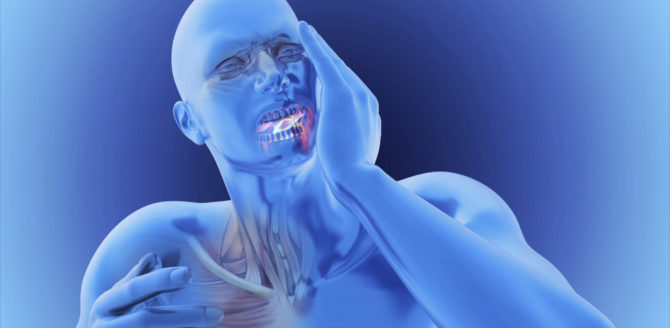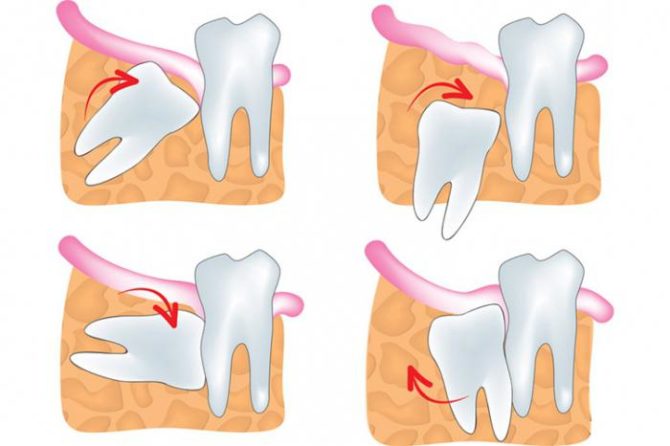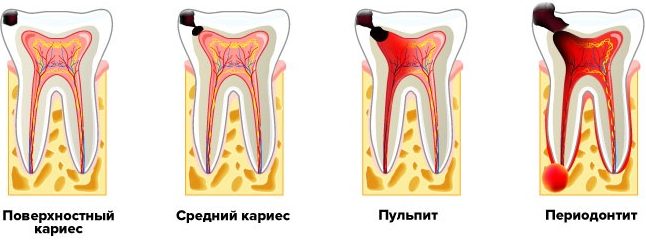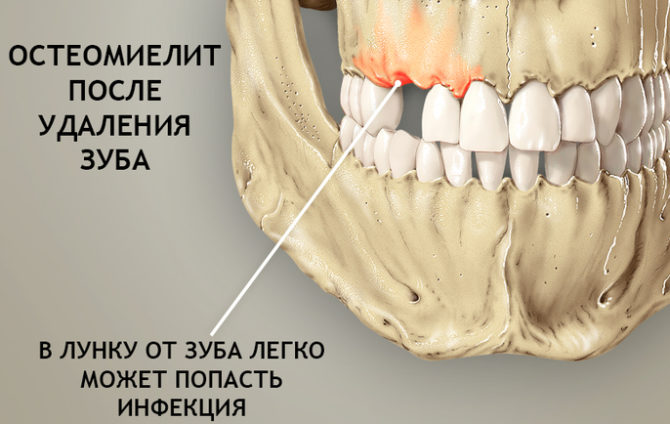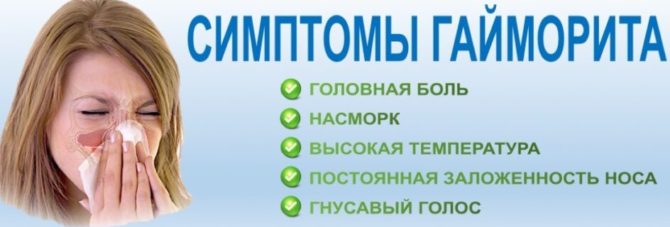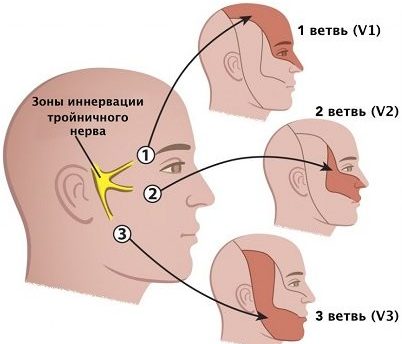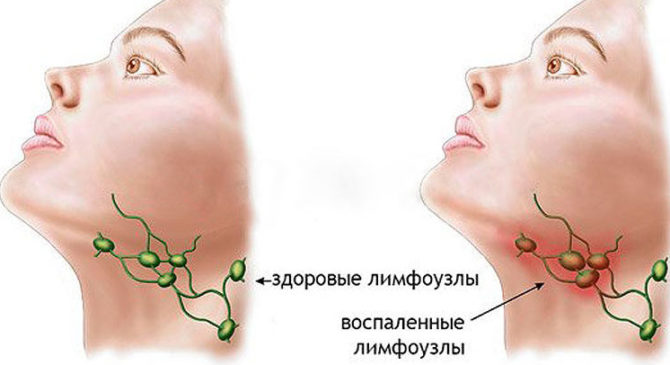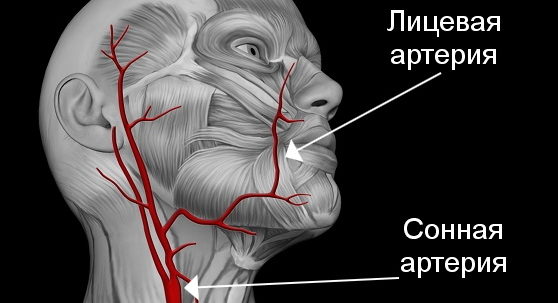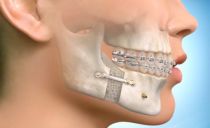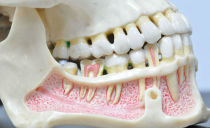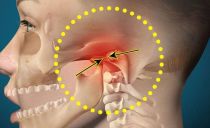Why does the lower or upper jaw hurt, what to do with pain in the jaw
There are many reasons why the jaw can hurt on the left side, right, top or bottom. Diseases of the teeth, ears, sinuses, lymph nodes, gums, soft tissues of the face, some internal organs and the jaws themselves can lead to such an unpleasant symptom. To find out the correct diagnosis and proceed to competent treatment, it is necessary to undergo many diagnostic measures, therefore, if disturbing jaw pain occurs, you should immediately consult a doctor.
Content
The most common reasons why the jaw hurts
More often, throbbing pain appears in the lower jaw on the left or on the right, damage to the opposite bone tissue is much less common. In both cases, the most common causes of discomfort include:
- complex tooth extraction;
- teething wisdom tooth;
- dental diseases;
- fracture;
- osteomyelitis;
- osteogenic sarcoma.
Difficult tooth extraction
Pain in the jaw can occur due to complex tooth extraction. Usually, you have to cut the gums with it or cut the tooth itself into several parts. Even if all precautions have been followed, after such an operation, edema appears in the lower part of the face, inflammation can begin. Usually, postoperative pain disappears 2-3 days after the procedure, if it is not accompanied by temperature and other negative signs, do not worry.
Teething wisdom
The lower or opposite jaw may hurt due to atypical teething of the wisdom tooth. By the time of its growth in the dentition there is no more free space, so the eight often begins to erupt in the wrong direction. In the best case, the molar will come out at a slight angle or abut against an adjacent tooth, at worst it will turn towards the jawbone, then aching pain will gradually increase in its area.
It is not possible to independently determine why the jaw hurts and breaks the jaw on the left or right side. This can only be done in dentistry, so do not hesitate to contact a specialist.
Tooth diseases
Dental diseases, pain from which can radiate to the jaw, include:
- deep caries;
- pulpitis - inflammation of the nerve of the tooth;
- periodontitis - inflammation of the layer between the tooth and bone;
- cyst - purulent bladder in the gum;
- fistula - purulent inflammation at the root of the tooth that goes out through the soft tissues.
Typically, with such diseases, the tooth hurts so much that it gives to the jaw. Often the symptoms are exacerbated by an increase in temperature, soft tissues can swell. When pressing on the cheek or gum, toothache usually worsens.
Jaw fracture
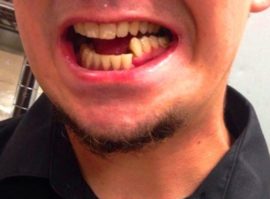 With serious injury to the lower part of the skull, a fracture of the jaw is possible, usually such injuries appear after serious incidents. With a fracture, the jaw hurts so much that it is not difficult to identify the cause of the manifestation.
With serious injury to the lower part of the skull, a fracture of the jaw is possible, usually such injuries appear after serious incidents. With a fracture, the jaw hurts so much that it is not difficult to identify the cause of the manifestation.
The pain in the damaged area is aggravated by pressure, opening the mouth, chewing and any other movement with the jaw. Asymmetry appears on the face.Usually it occurs due to the swollen cheek, but the cause of this may be the displacement of the bone at an unnatural angle.
An open fracture is always accompanied by severe bleeding, with such an injury, the patient should be given emergency medical care.
Jaw osteomyelitis
Osteomyelitis is an infection of the jaw bone. The cause of the pathology can be an advanced dental disease, only in rare cases the infection penetrates the bone tissue in another way.
Osteomyelitis is accompanied by pain in the upper or lower jaw, fever and general malaise. Unpleasant sensations intensify with pressure and have a pulsating character, the development of an abscess (accumulation of pus) is possible.
Treatment of complicated osteomyelitis consists in the surgical removal of the tissue affected by the infection and further antibiotic therapy. Rehabilitation after illness sometimes takes more than one week.
Osteogenic Sarcoma
Sarcoma is a type of bone cancer. More often, the upper jaw on the left or on the right hurts because of it, but sometimes it develops in the lower bone tissues. An additional symptom of the disease is numbness in the upper or lower jaw, even bone deformation is possible.
Treatment for sarcoma is to remove the tumor and chemotherapy. If you start treatment on time, the chance of a full recovery will be 80%.
Why only the upper jaw hurts
All of the previously listed factors can lead to pain in the upper part of the face, but there are reasons that are characteristic only for it:
- sinusitis - inflammation of the maxillary sinuses;
- dysfunction of the temporomandibular joint;
- neuralgia of the auricle or trigeminal nerve;
- carotidinia.
For such reasons, pain in the jaw is dangerous to human health, many of these diseases require complex and lengthy treatment.
Sinusitis
In the human skull there are several maxillary sinuses - voids in the bone. Each is covered with a vulnerable mucous membrane that can be infected. If the jaw hurts only on the right or on the left, then the sinus near the ear is inflamed. However, much more often this disease manifests itself in the nose.
Violation of the function of the temporomandibular joint
The temporomandibular joint is necessary to connect the jaw to the base of the skull. Violation of his work leads to pain in the upper jaw and can be associated with various reasons, the most common of them:
- chewing muscle inflammation;
- malocclusion;
- osteoarthritis - rapid aging of cartilage.
If the temporomandibular joint is damaged, the whole head hurts, and not just the jaw. The pain syndrome extends to the temples, cheeks and even the forehead. It is difficult for a person to move his mouth, eat and talk. Each opening of the mouth is accompanied by jaw clicks.
Auricle or trigeminal neuralgia
Usually, with such a disease, only one side of the jaw hurts, the duration of pain attacks can reach several hours. Discomfort often manifests itself in the upper jaw, but can also go to the lower. A person has the feeling that his teeth are aching.
The epicenter of pain in trigeminal neuralgia is the temporal region, when you click on this area it becomes unbearably painful.
Carotidinia
Carotidinia is a type of migraine. With it, a throbbing pain in the upper jaw occurs with attacks that last for several hours. Unpleasant sensations begin to appear in the upper part of the face, in the ear, sometimes the neck. At the peak of the attack, pain affects the entire face.
Usually carotidinia is a symptom of other diseases, which in themselves cause pain in the lower part of the face. These include damage to nerves or joints, head injuries.
Why only the lower jaw hurts
Discomfort in the lower jaw and chin is usually due to the following reasons:
- inflammation of the lymph nodes;
- arteritis of the facial artery;
- neuralgia;
- myocardial infarction.
Much more often a person has pain in the lower jaw, the reason is that it is more prone to injury - the upper bone is less vulnerable.
Lymph node inflammation
In the neck of a person there is an accumulation of lymph nodes, which are responsible for the production of lymphocytes involved in the body's immune defense. Sometimes the nodes become inflamed, which is accompanied by pain in the lower jaw on the left or on the opposite side. The inflammatory process is one-sided in nature, therefore, the pain is localized in a certain place.
In the advanced case, inflammation of the lymph nodes can be diagnosed on their own, since the soft tissues of the neck swell strongly and seals appear on them.
Arteritis of the facial artery
The entire human body is penetrated by arteries and blood vessels. With inflammation of the vessels and arteries located in the head, arteritis develops, which leads to jaw pain. Most often, this disease is localized in the area where the carotid and facial arteries pass near the angle of the lower jaw and its base. There they bend, and therefore suffer more often.
In arteritis, only the lower jaw and chin ache at first, with the development of the disease, the discomfort gives to the corners of the mouth and the nose.
Neuralgia
Near the lower jaw are the upper laryngeal and glossopharyngeal nerves. If they are damaged, neuralgia occurs, which causes pain in the jaw. Similar factors lead to the development of the disease:
- injuries
- infectious diseases;
- hypothermia.
The pain manifests itself in the form of seizures, worse when pressed. Sometimes there is redness of the skin, in rare cases, cramps in the muscles of the neck are possible.
Myocardial infarction
One of the unobvious symptoms of a heart attack is discomfort in the lower face. Heart pain goes up the nerve endings and gives to the lower jaw and chin. The patient has a feeling that his jaw is breaking and his teeth are sore, but it is not possible to recognize the cause of such symptoms. In many people, aches spread to the shoulders and arms and can give in the right and left side. People with coronary heart disease sometimes detect seizures precisely by the nature of the pain.
What to do if your jaw hurts
If severe pain is accompanied by temperature, and the soft tissues of the face are noticeably swollen, you need to call an ambulance. The same should be done if the pain occurred after a bruised jaw area. In these cases, discomfort is caused either by a fracture or an infectious lesion. Both pathologies can be dangerous not only for health, but also for life.
In other cases, you need to make an appointment with the therapist. He will conduct an initial examination, ask about all the additional symptoms, direct him to an x-ray. Usually, the work with the therapist ends here, as he only identifies the cause of the pain, and then directs the patient to a narrow specialist: dentist, surgeon, otolaryngologist, neurologist. What to do to the patient, whose lower or upper jaw hurts and achs, the doctor decides a narrow profile.
To reduce pain before going to the doctor, you can take these drugs:
- Aspirin;
- Analgin;
- Paracetamol;
- Ibufen
- Ketorol;
- Ketanov.
Be sure to give up solid food, try to minimize the load on the jaw. If you are sure that the pain is associated with the teeth, you can apply a cold compress to your face. It will reduce discomfort and reduce swelling.
If the pain is localized in the upper jaw on the right or on the left side, cold compresses should be discarded. In some diseases associated with facial nerves, cold is contraindicated, as it can only increase inflammation.
Pain in the jaw rarely speaks of diseases that do not require urgent treatment. Almost always, you need to immediately contact a specialist.

